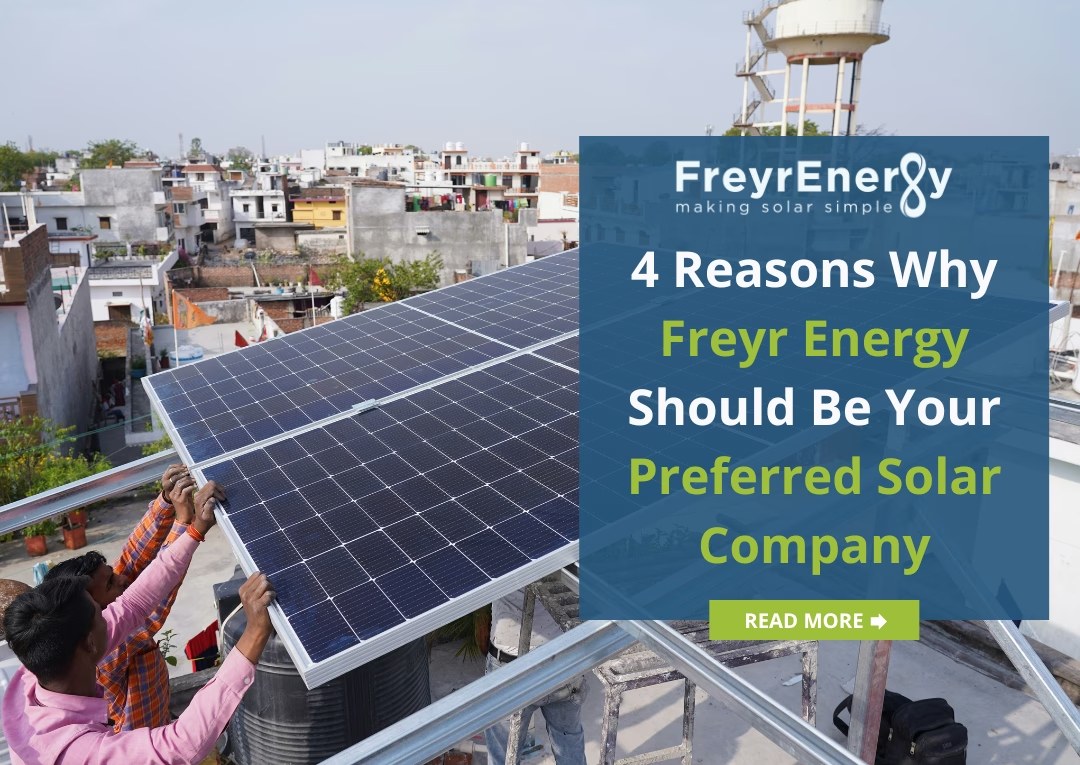Solar energy is an environment-friendly source of energy. For a rapidly developing nation like India, the need for sustainable development has been one of the major reasons to resort to solar energy. Various government policies have also been introduced to encourage more investment and provide affordable access to replenishable sources of energy. In this blog, you will learn about solar rooftop systems, one of the popular solar energy generation systems that has been instrumental in bringing more homes and industries into the solar canopy.
What are solar rooftop systems?
The sight of solar panels on the top of buildings has become common in many places.
These are solar rooftop systems that generate electricity from the sun’s light and heat. Solar rooftop systems tap the renewable and abundant source of energy, the Sun, and use the power generated to run the electrical equipment on the site or transfer it to the common grid.
Solar rooftop systems are installed in both domestic and commercial buildings. They usually contain rooftop PV panels.
Why is India promoting solar rooftop installation?
India is a country that enjoys copious sunshine throughout the year. This satisfies the chief condition to set up rooftop solar power systems. The following are some of the advantages of solar energy, which provide India a strong basis for promoting solar rooftop systems:
Renewable source:
Solar power is a renewable source that does not get exhausted even after repeated use. The conventional sources of power are non-renewable. With indiscriminate usage over the years, the conventional sources are fast depleting.
The ever-increasing demand for power created by the mounting population makes it essential for a major shift towards replenishable sources of power. India plans to achieve 500 GW of renewable energy capacity by 2030. To make this possible, setting up solar rooftop systems, etc., is imperative. With favourable policies and meticulous implementation, the share of solar energy in India’s total energy mix is bound to increase slowly.
Environmental protection:
Solar energy is the cleanest source of power. There are no greenhouse gas emissions, unlike conventional sources of power. Massive use of solar systems helps reduce the carbon footprint and paves the way for a healthier environment.
India has proposed reducing the carbon intensity of the economy by less than 45% by 2030 and achieving net-zero carbon emissions by 2070. Promoting solar rooftop in India is one way to achieve this. By this, India will play a major role in mitigating the carbon footprint in the world.
Job opportunities:
The solar power sector can offer wonderful job opportunities to many people. There are various components involved in a solar energy system, and each of the industries manufacturing the components will create a lot of job roles.
This ultimately leads to the economic growth of the country. With India’s focus on the widespread adoption of renewable energy in rural and urban areas, the installation of solar rooftop panels can lead to many more job positions in the future.
Energy independence:
The demand and supply equilibrium of non-renewable resources is lopsided. There will not be sufficient supply in the coming years, given the rate of increase in demand. This indicates that our reliance on non-renewable sources has to be restricted.
When we resort to renewable sources of power, such as solar energy, India can become self-reliant for its energy needs. Solar energy is replenishable and is abundantly available. The country can handle any increase in demand with proper planning and implementation of solar power projects. Energy independence is the need of the hour to reduce the global burden caused due to excessive demand for fossil fuels.
Reduced energy bills:
Shifting to solar energy can significantly reduce the energy bills of every home and industry. Since non-renewable sources of power are becoming scarce, their cost is always on the rise. When the country concentrates more on renewable sources of power, it can help every household save huge sums of money that can be utilised for productive activities.
Access to energy:
Even now, several rural areas do not have access to conventional sources of power due to the high cost associated with it. This has affected the living standards of people in such areas.
With solar power, access to electricity can now be enjoyed even in remote villages. Since this can be a meaningful step in implementing various developmental activities in rural areas, India is keen on promoting solar energy.
Load management:
During the day, there is a high demand for power, and this creates a necessity to increase the capacity of existing power plants. However, this can only lead to an increase in cost since the supply of conventional forms of power is limited.
India considers solar rooftop systems a viable option to manage peak hour load. It can contribute to the additional need for power without being a burden on the finances of the people and the government. Also, since solar power is clean energy, it does not add to pollution.
Conclusion
With the vision of attaining sustainable growth, India has been promoting solar rooftop systems. As we have seen above, the benefits are multiple. The government offers many tax concessions to domestic and industrial users of solar energy, which is an encouraging sign for more people to invest in solar systems.
There is a global need to protect the environment, and by promoting solar energy systems in the country, India pledges its commitment to aligning with global green energy policies.
Frequently Asked Questions
Yes, solar rooftop systems are the most commonly found solar power plants in India.
The Indian government offers various subsidies to promote the installation of solar energy systems.
The space depends on the number of panels, which will be decided by the capacity of the plant.



